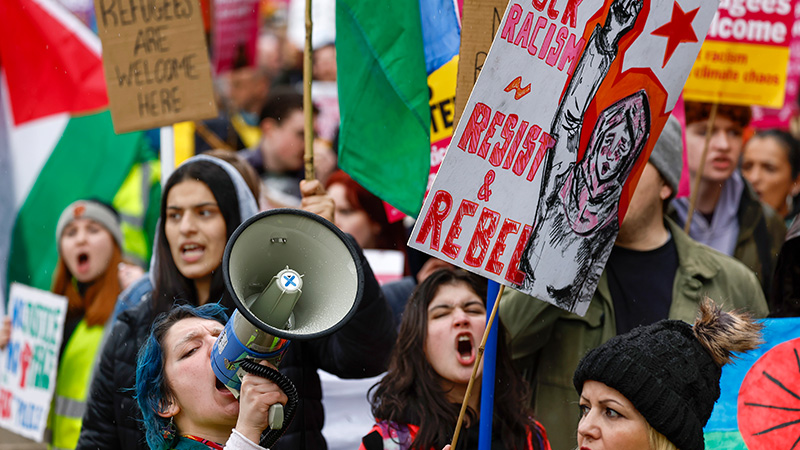Starting next month in Scotland, one can anonymously report hate speech offenses from locations as unconventional as sex shops and campgrounds, with the expectation that the perpetrators will face imprisonment. This is not an early April Fool’s joke. On April 1, the Hate Crime and Public Order Act will come into effect in Scotland.
The information campaign, highlighted by BBC report, features a television spot with a character named “the hate monster” that grows in size until it “weighs a ton.” A grim voiceover warns, “Before you know it, you could commit a hate crime.”
The ad also touches on class issues, as the commentary is delivered in a Scottish dialect, suggesting that hatred towards “others” is predominantly harbored by lower social classes. This has sparked heated debate, and even some leftist politicians, such as Labour leader John Lamont, have criticized the campaign as “patronizing.” Nonetheless, they voted in favor of the act, which is about to become law.
The mentioned sex shop, a LGBTQ-friendly establishment in Merchant City, Glasgow, is among 411 designated “hate speech reporting” centers established by Scottish police across the country. Other reporting locations include a mushroom farm, a camping site and a dog food shop.
These centers allow for the anonymous reporting of individuals who engage in “threatening or abusive behavior intended to stir up hatred against someone based on specific characteristics” such as age, disability, religion, sexual orientation, gender identity, and sex characteristics, sometimes referred to as intersex conditions. This also applies to online forum posts, with penalties for such offenses reaching up to seven years in prison.
The law is vaguely worded, leading to confusion among ministers attempting to explain it. Scottish police define a hate crime as “any crime that is perceived by the victim or any other person as being motivated entirely or partly by malice or ill will towards a social group.”
This subjective definition leaves wide room for interpretation. Anonymous reporting also ensures that if someone falsely accuses another, they remain unpunished while the accused’s life could be turned upside down.
Humza Yousaf, leader of the Scottish National Party and first minister of Scotland, believes the law will make Scotland safer for citizens, especially those from sexual and ethnic minorities. Critics argue it incentivizes denunciations, revenge against disliked individuals, and serves as a tool to divide society. Feminists have criticized the law’s omission of women, noting that while it protects transgender individuals, it seemingly allows for insults against women.
Jim Spence, a commentator for The Courier, points out the irony in the law’s application, emphasizing that it seems safer to insult women than transgender individuals in Scotland. Leaked training materials from Scottish police suggest that the censorship will also extend to comedians telling “offensive jokes” and actors reciting texts written by long-deceased playwrights, leading to a safer but arguably less joyful Scotland.
Similar laws are being considered in other countries, such as Ireland and Canada, where hate crimes could lead to life imprisonment.


